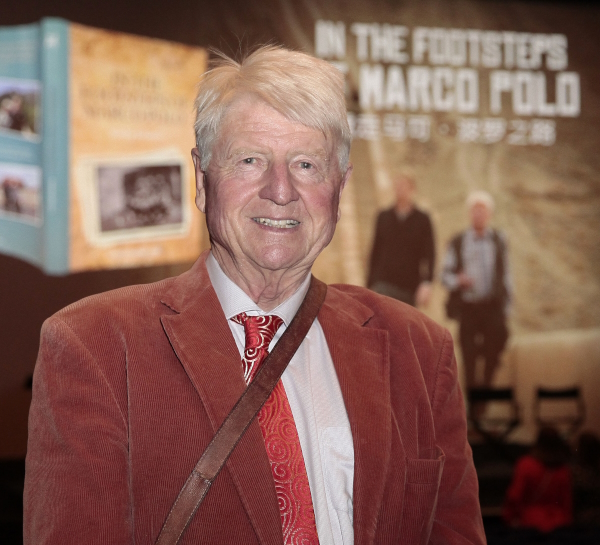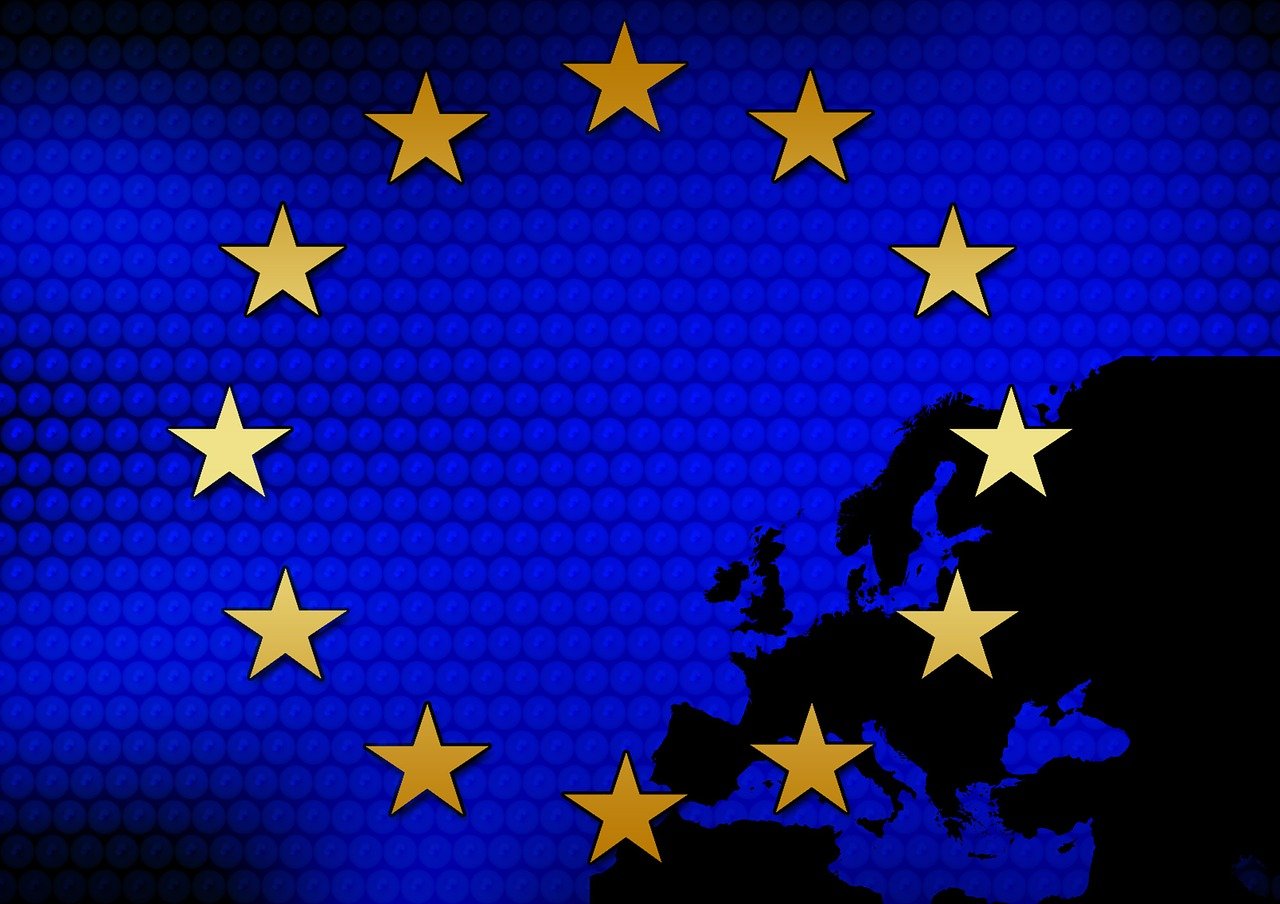Stanley Johnson writes and wrongs

Stanley Johnson
- Published
- Opinion & Analysis

Our Editor at Large, former MEP and lifelong environmental campaigner Stanley Johnson offers his perspective on the politics of the planet — from climate and conservation to the corridors of power
Where the Argonauts sailed, a new battle begins on Greece’s coast
The European Environment Agency’s latest report on Europe’s efforts to deal with climate change confidently cites Southern Europe as the continent’s ‘hotspot’. So Michael Mitsikos, Mayor of South Pelion, Magnesia, Greece, is certainly at the sharp end of the battle against global warming. When I called upon him in late June in his mayoral office in Argalasti, a bustling agricultural town halfway down the peninsula, the outside temperature was well over 80 degrees Fahrenheit (26.7°C). The forecast for the weekend predicted highs into the 90s.
The EEA report runs to over 300 pages. Using my iPhone, I picked out a few highlights from the executive summary. “Europe is the fastest warming continent in the world,” I read aloud. “Extreme heat, once relatively rare, is becoming more frequent while precipitation patterns are changing. Recent years have seen catastrophic floods in several regions…” “They got that last bit right, didn’t they?” Mitsikos replied.
We both recalled the extraordinary storm that hit the Pelion peninsula in early September 2023. My wife and I have had a house in Pelion since the turn of the century. We’ve returned year after year, enjoying the beaches and mountains, the ubiquitous olive trees and, above all, the people who live in the famous mountain and coastal villages. But Storm Daniel, in 24 hours of solid destruction, swept all before it. Houses and cars washed into the sea; coastal resorts were mangled beyond recognition.
Since then, rebuilding has proceeded apace. Seaside businesses have reopened. Bridges and roads have been repaired. Mitsikos has worked his socks off. When I first met him some years ago, he was sceptical about global warming. I doubt if even today he would admit there’s a clear-cut correlation between climate change and the havoc wrought by Storm Daniel. But whatever the precise causes, he certainly accepts the need for central government to “support vulnerable regions in collaboration with the EU and other agencies”.
One side of the Pelion peninsula faces the Aegean. The other – where my wife and I live – looks onto the Pagasitic Gulf. On a clear day, we can have breakfast on our terrace, gazing across the Gulf to the distant mountains, including Mount Parnassus, home of the gods.
Volos – at the head of the Gulf and only an hour’s drive from Argalasti – may be Greece’s seventh-largest city, but to me it will always be the ancient Pagasae, the place from which Jason and the Argonauts set sail across the wine-dark sea in search of the Golden Fleece.
I remember going down to the waterfront village of Milina the morning after Storm Daniel. The Gulf was full of debris, its pristine waters horribly polluted. “We have worked together with the government, with local authorities, with business and the local people to put things straight since then,” he told me in his office.
“Will you bring back dolphins in abundance too?” I asked. These days, sightings of dolphins from our terrace are few and far between. “We’ll try,” Mitsikos promised.
In November 2022, just 10 months before Storm Daniel had done its worst, Mitsikos addressed a World Coastal Forum meeting in Geneva aimed at mobilising international support for the protection of wetlands and coastal ecosystems. I was there. I heard him. He invited colleagues from around the world to come to South Pelion, to the little coastal village of Kala Nera, to discuss ways in which coasts and wetlands – including marshes and tidal flats – might be better protected.
“Is that invitation still on the table?” I asked him. “Of course it is,” he said.
Today, one of the key issues – in the Mediterranean and elsewhere – is the battle against plastic pollution along coasts and in the sea. South Pelion is not immune. Tragically, efforts to reach an international agreement appear to be faltering, despite new evidence suggesting possible links between microplastics and human health that make the issue more urgent than ever.
After leaving Mitsikos’ office, an idea occurred to me. Mitsikos said his invitation to a meeting in Kala Nera was still open. Perhaps he could invite the CEOs of Greece’s main plastic producers to come there too. The aim would be to reach, at a minimum, an agreement between Greek producers (others too?) to rapidly phase out the production – and perhaps also the import – of plastic bottles, even before an international or EU-level treaty is in place.
They could call it the Kala Nera Concordat or something along those lines. If a meaningful commitment to reduce plastic waste could begin anywhere, why not here, on this once battered but still beautiful stretch of Greek coast? Even limited unilateral measures by the South Pelion Mayoralty could be legally defensible and have a tremendous practical and symbolic impact.
Stanley Johnson is a leading environmentalist, award-winning author and former Member of the European Parliament (MEP). Father of former UK Prime Minister Boris Johnson, Stanley has helped shape major environmental policies in Europe and championed global conservation efforts. He remains a powerful voice on sustainability, climate change and international affairs. He is also a distinguished and prolific author, with more than 25 books to his name spanning environmental protection and global conservation, fiction, and memoir.
RECENT ARTICLES
-
 Europe cannot call itself ‘equal’ while disabled citizens are still fighting for access
Europe cannot call itself ‘equal’ while disabled citizens are still fighting for access -
 Is Europe regulating the future or forgetting to build it? The hidden flaw in digital sovereignty
Is Europe regulating the future or forgetting to build it? The hidden flaw in digital sovereignty -
 The era of easy markets is ending — here are the risks investors can no longer ignore
The era of easy markets is ending — here are the risks investors can no longer ignore -
 Is testosterone the new performance hack for executives?
Is testosterone the new performance hack for executives? -
 Can we regulate reality? AI, sovereignty and the battle over what counts as real
Can we regulate reality? AI, sovereignty and the battle over what counts as real -
 NATO gears up for conflict as transatlantic strains grow
NATO gears up for conflict as transatlantic strains grow -
 Facial recognition is leaving the US border — and we should be concerned
Facial recognition is leaving the US border — and we should be concerned -
 Wheelchair design is stuck in the past — and disabled people are paying the price
Wheelchair design is stuck in the past — and disabled people are paying the price -
 Why Europe still needs America
Why Europe still needs America -
 Why Europe’s finance apps must start borrowing from each other’s playbooks
Why Europe’s finance apps must start borrowing from each other’s playbooks -
 Why universities must set clear rules for AI use before trust in academia erodes
Why universities must set clear rules for AI use before trust in academia erodes -
 The lucky leader: six lessons on why fortune favours some and fails others
The lucky leader: six lessons on why fortune favours some and fails others -
 Reckon AI has cracked thinking? Think again
Reckon AI has cracked thinking? Think again -
 The new 10 year National Cancer Plan: fewer measures, more heart?
The new 10 year National Cancer Plan: fewer measures, more heart? -
 The Reese Witherspoon effect: how celebrity book clubs are rewriting the rules of publishing
The Reese Witherspoon effect: how celebrity book clubs are rewriting the rules of publishing -
 The legality of tax planning in an age of moral outrage
The legality of tax planning in an age of moral outrage -
 The limits of good intentions in public policy
The limits of good intentions in public policy -
 Are favouritism and fear holding back Germany’s rearmament?
Are favouritism and fear holding back Germany’s rearmament? -
 What bestseller lists really tell us — and why they shouldn’t be the only measure of a book’s worth
What bestseller lists really tell us — and why they shouldn’t be the only measure of a book’s worth -
 Why mere survival is no longer enough for children with brain tumours
Why mere survival is no longer enough for children with brain tumours -
 What Germany’s Energiewende teaches Europe about power, risk and reality
What Germany’s Energiewende teaches Europe about power, risk and reality -
 What the Monroe Doctrine actually said — and why Trump is invoking it now
What the Monroe Doctrine actually said — and why Trump is invoking it now -
 Love with responsibility: rethinking supply chains this Valentine’s Day
Love with responsibility: rethinking supply chains this Valentine’s Day -
 Why the India–EU trade deal matters far beyond diplomacy
Why the India–EU trade deal matters far beyond diplomacy -
 Why the countryside is far safer than we think - and why apex predators belong in it
Why the countryside is far safer than we think - and why apex predators belong in it


























